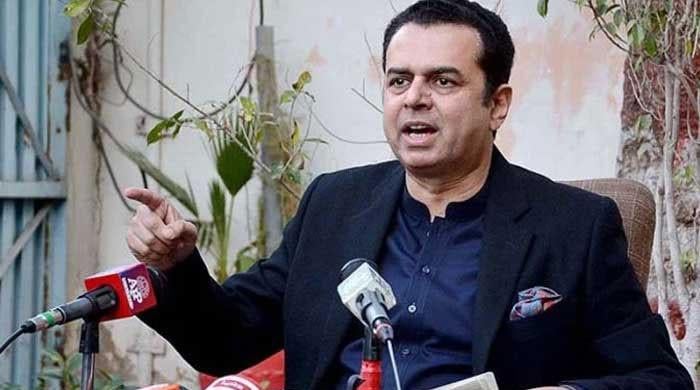Iddat case: IHC orders session court to decide on sentence suspension in 10 days
Justice Miangul Aurangzeb gives one month's time to court to decide on pleas against couple's conviction
June 13, 2024

- Justice Aurangzeb hears pleas filed by Imran Khan, Bushra Bibi.
- Ex-PM seeks transfer of case to district and sessions judge west.
- He requests court to order announcement of reserved verdict.
ISLAMABAD: The Islamabad High Court (IHC) Thursday directed a district and sessions court to decide the pleas seeking the suspension of the sentence of former prime minister Imran Khan and his wife Bushra Bibi in the iddat case in 10 days.
The IHC further ordered the court to decide on the pleas challenging the conviction of couple in the said case in one month.
The development comes as Justice Miangul Hassan Aurangzeb heard multiple pleas filed by Khan and Bushra.
In his petition, Khan had sought the announcement of the district and sessions court's reserved verdict and had further requested the high court to hear the appeals in the said case.
Meanwhile, Bushra had sought for a decision on her plea filed in the sessions court seeking sentence suspension.
Last week, the former first lady had also moved the IHC seeking suspension of her sentence in the iddat case.
It is to be noted that in January, Khawar Maneka, Bushra's ex-husband, had challenged the couple's marriage and had termed their nikah as fraudulent, stressing that the marriage was solemnised during her iddat (the time a woman goes into isolation after a divorce or her husband's death).
A trial court had then handed down a seven-year sentence to the couple in February and imposed a fine of Rs500,000 each on the duo.
Khan and Bushra had then filed various appeals including the ones against their conviction and those seeking suspension of their sentences.
Judge Shahrukh Arjumand had resered the verdict on their appeals challenging their conviction on May 23.
However, in light of Maneka's repeated expression of no-confidence, the IHC, on Judge Arujmand's request, had then transferred the case to the court of Additional District and Sessions Judge Muhammad Afzal Majuka.
During the hearing at the IHC today, the Pakistan Tehreek-e-Insaf's (PTI) Khan's lawyer Salman Akram Raja sought the announcement of the verdict reserved by Judge Arujmand.
The lawyer urged the IHC to either hear the appeals itself or transfer them to the additional sessions judge West.
He said that the court should set a time for the session court to decide the appeals.
Meanwhile, Maneka's counsel Rizwan Abbasi opposed the transfer of appeals to a sessions judge and contended that the court's administrative orders can neither be directly challenged nor indirectly.









